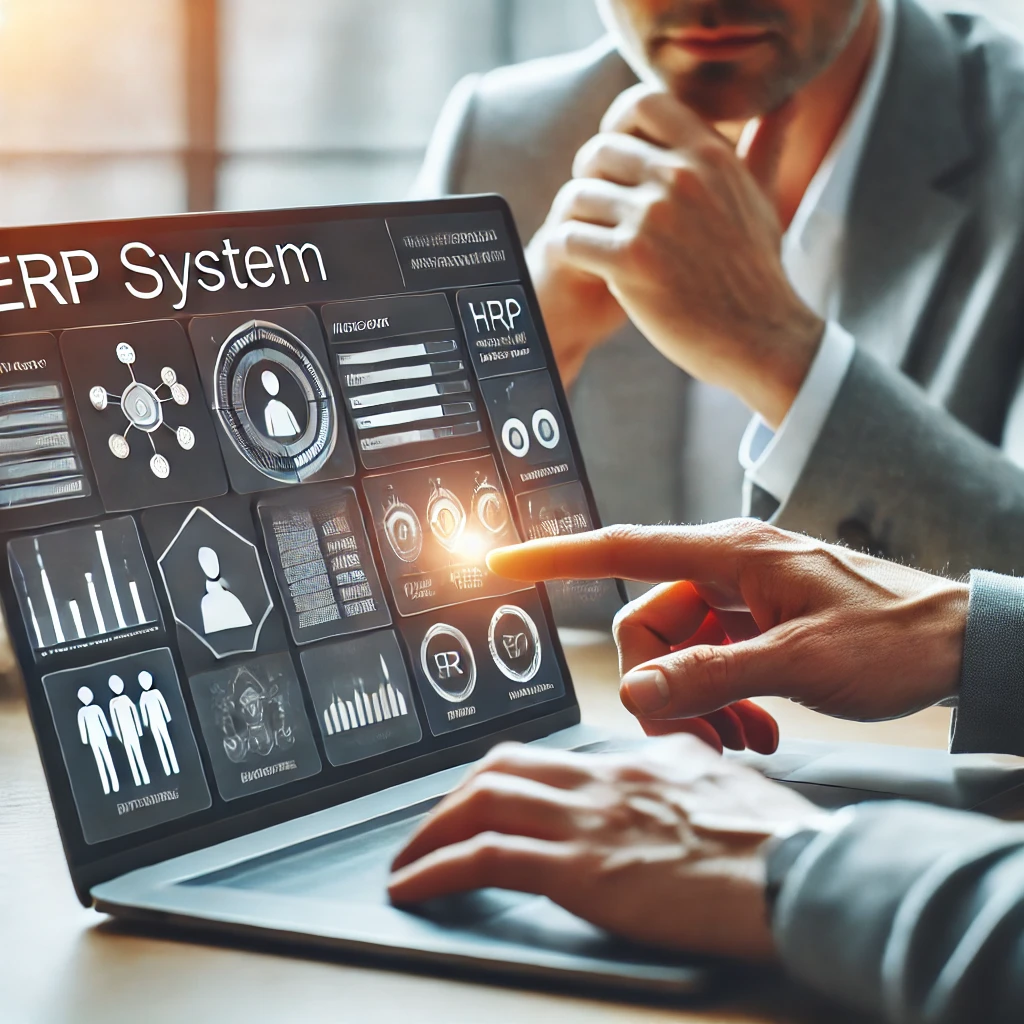Benefits of ERP Systems for Startups and Medium sized Businesses

In today’s fast-paced business environment, startups and medium-sized enterprises (SMEs) face numerous challenges ranging from managing finances and inventory to streamlining operations and ensuring customer satisfaction. One key solution that has emerged to address these challenges is Enterprise Resource Planning (ERP) systems. ERP systems, particularly cloud-based solutions, offer a comprehensive platform for managing various business functions seamlessly. This article delves into the significant benefits of ERP systems for startups and medium-sized businesses, highlighting how these tools can streamline processes, improve efficiency, and support sustainable growth.
Enhanced Efficiency Through Process Automation
Improved Data Management and Accessibility
Affordable Solutions for Small and Medium-Sized Enterprises (SMEs)
Streamlined Financial Management
Enhanced Customer Relationship Management (CRM)
Better Inventory and Supply Chain Management
Facilitation of Digital Transformation
Scalability and Flexibility for Business Growth
Enhanced Security and Data Compliance
Better Resource Management and Workforce Efficiency
Enhanced Efficiency Through Process Automation
One of the most prominent benefits of ERP systems is their ability to automate various business processes. For startups and medium-sized businesses, manual tasks such as data entry, invoicing, and inventory management can be time-consuming and prone to errors. By implementing an ERP system, these repetitive tasks are automated, freeing up valuable time and resources for strategic activities. This automation reduces the likelihood of errors and ensures that all business processes are aligned, resulting in improved overall efficiency
Improved Data Management and Accessibility
Startups and SMEs often struggle with data management due to limited resources. ERP systems provide a centralized database that allows for the efficient storage and retrieval of data. This centralized approach ensures that all departments, from finance to sales and human resources, have access to real-time data. Improved data accessibility enables informed decision-making and facilitates collaboration across departments, thereby enhancing overall productivity
Affordable Solutions for Small and Medium-Sized Enterprises (SMEs)
Many SMEs hesitate to invest in ERP systems due to concerns about costs. However, with the advent of cloud-based ERP solutions, these concerns are becoming increasingly unfounded. Cloud ERP systems eliminate the need for expensive hardware and infrastructure, reducing upfront costs. Moreover, these systems are scalable, meaning businesses only pay for the features and capacity they need. This scalability is particularly beneficial for startups and growing SMEs, allowing them to adapt their ERP usage to their evolving needs without incurring significant costs
Streamlined Financial Management
Managing finances can be daunting for any business, but it is particularly challenging for startups and SMEs due to limited financial expertise and resources. ERP systems streamline financial management by integrating various financial functions such as accounting, payroll, and financial reporting into a single platform. This integration simplifies the management of financial transactions, reduces errors, and ensures compliance with regulatory requirements. As a result, business owners can focus on growth rather than getting bogged down by financial complexities
Enhanced Customer Relationship Management (CRM)
In today’s highly competitive business environment, fostering strong customer relationships is essential. ERP systems often come with integrated Customer Relationship Management (CRM) modules that help businesses manage customer interactions more effectively. For startups and SMEs, having an integrated CRM system means better customer data management, personalized communication, and improved customer service. This integration helps build customer loyalty, enhances customer retention, and ultimately drives sales growth
Better Inventory and Supply Chain Management
Inventory management is a critical function for businesses, particularly those in manufacturing, retail, and distribution. ERP systems offer comprehensive inventory management tools that help businesses keep track of stock levels, manage orders, and predict inventory needs based on historical data. For SMEs, this means reduced costs associated with overstocking or stockouts and a more streamlined supply chain process. Better inventory management also contributes to improved customer satisfaction by ensuring products are available when needed
Facilitation of Digital Transformation
Digital transformation has become a necessity rather than an option for modern businesses.
ERP systems serve as a catalyst for digital transformation by integrating various business functions into a unified digital platform. This integration allows startups and SMEs to leverage data analytics, artificial intelligence, and other emerging technologies to gain a competitive edge. By adopting an ERP system, businesses can automate processes, improve data-driven decision-making, and enhance overall agility in a rapidly changing market environment
Scalability and Flexibility for Business Growth
Startups and SMEs are constantly evolving, and their needs change as they grow. One of the key advantages of modern ERP systems is their scalability and flexibility. These systems can easily accommodate a business’s growth by allowing additional modules and features to be added as needed. This flexibility ensures that the ERP system continues to provide value even as the business expands, avoiding the need for a complete overhaul or migration to a new system
Enhanced Security and Data Compliance
Data security is a major concern for businesses of all sizes, and startups and SMEs are no exception. ERP systems provide robust security features, including data encryption, access controls, and regular updates to protect sensitive business information. Additionally, many ERP systems ensure compliance with industry regulations and standards, reducing the risk of legal issues and potential fines. Enhanced security and compliance are especially crucial for businesses managing sensitive customer data, such as those in the finance, healthcare, and retail industries.
Better Resource Management and Workforce Efficiency
For startups and SMEs, managing human resources effectively is crucial for maintaining productivity and morale. ERP systems come equipped with human resource management modules that help in tracking employee performance, managing payroll, and organizing training programs. This streamlined approach to HR management ensures that employees are utilized effectively and that their skills are developed in line with business goals. Improved workforce efficiency leads to better service delivery and increased profitability
Conclusion
ERP systems offer a myriad of benefits to startups and medium-sized businesses, from enhanced efficiency and cost savings to improved data management and customer relationships. As the business landscape becomes increasingly digital, the adoption of ERP systems can provide a competitive edge that is critical for sustainable growth. For startups and SMEs looking to streamline operations, reduce costs, and foster growth, investing in a robust ERP system is not just a wise decision but a strategic imperative




